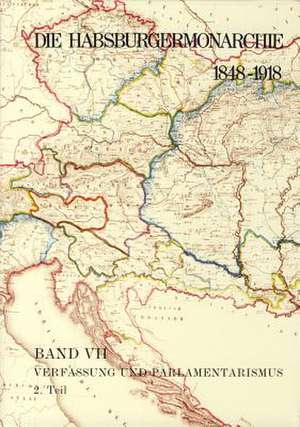Die Habsburgermonarchie 1848-1918 Band VII/2: Verfassung und Parlamentarismus
Editat de Peter Urbanitsch, Helmut Rumplerde Limba Germană Hardback – 31 dec 1999
Preț: 754.82 lei
Preț vechi: 877.71 lei
-14% Nou
Puncte Express: 1132
Preț estimativ în valută:
144.44€ • 151.11$ • 119.98£
144.44€ • 151.11$ • 119.98£
Carte indisponibilă temporar
Doresc să fiu notificat când acest titlu va fi disponibil:
Se trimite...
Preluare comenzi: 021 569.72.76
Specificații
ISBN-13: 9783700128717
ISBN-10: 3700128711
Dimensiuni: 172 x 241 x 63 mm
Greutate: 2.44 kg
Editura: Verlag D.Oesterreichische
ISBN-10: 3700128711
Dimensiuni: 172 x 241 x 63 mm
Greutate: 2.44 kg
Editura: Verlag D.Oesterreichische
